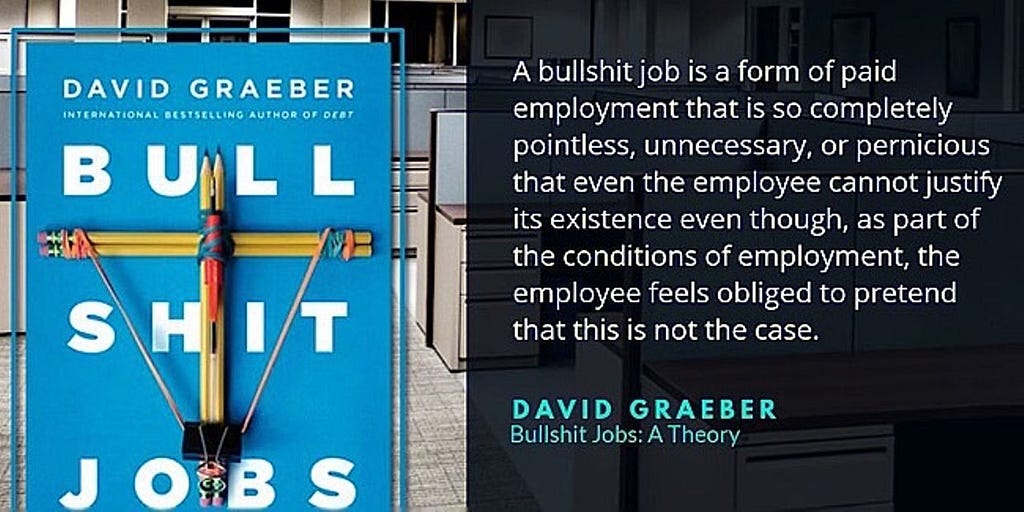work
Between Conflict and Collegiality: Palestinian Arabs and Jews in the Israeli Workplace
by Asaf Darr* The ongoing and fierce conflict between Jews and Palestinian Arabs is a daily reality in Israel, the country where I reside. As a sociologist of work and economic sociologist, I became increasingly interested in the ways in which the broader conflict is manifested in daily socio-economic encounters on the shop floor between […]
Free Bus Passes Are Giving Indian Women More Financial Freedom
C. Parvati was born and raised in Bangalore, but she never had the opportunity to visit the temples and tourist sites because she could not afford to spend money on such recreational activities. “Now, I am able to take my children and show them these places even within my budget when school has holidays,” says Parvati.
What changed? She’s been able to save money since the Karnataka state government made public transportation free for women in June.
Karnataka is one of several Indian states that have recently implemented a free bus pass for women. The initiative is called Shakti, which in Hindi means “strength.” In 2019, Delhi was the first place in the country to provide women with complimentary tickets printed on pink paper, and earlier this year, the state administration reported that more than one billion have been used thus far. Other states that have launched similar programs include Tamil Nadu, Punjab and Telangana.
The purpose of such policies is to bring more women into the workforce by lowering the cost and simplifying the process of working and traveling. According to the World Bank, India has one of the lowest rates of female labor participation in the world, with less than 25 percent of women over the age of 15 employed as of 2022, a decrease from 27 percent in 2012. In India, men frequently restrict the financial options available to women. And although these same men may object to their wives working outside the home, free travel gives women a choice that they did not have previously. Though women are free to work, if their commute is too expensive or unpredictable, they frequently choose not to. The governments that have put the program into place say that it has been successful and they intend to extend it.
 Women riding a bus in New Delhi. Credit: Pradeep Gaurs / Shutterstock
Women riding a bus in New Delhi. Credit: Pradeep Gaurs / Shutterstock
Often, marginalized women are those who have to work every day to feed their families, and are pressed for time with cooking, household chores and helping with elderly family members. Taking the bus helps them to save time and be efficient in their work. Without the bus, these women would walk on average three to five kilometers a day, which can cut down their annual earnings by up to a quarter.
“The convenience of the free bus saves them time and helps them in earning a double income,” says Tara Krishnaswamy, the co-founder of the non-governmental organization Political Shakti. Apart from saving money on their travel, the women are also able to take up extra work in the time they save, allowing them to earn more. According to Krishnaswamy, most of the marginalized women across the country depend on rations, a subsidized food program providing mostly rice and few necessities. The money the free bus rides save these women helps them buy nutritious food — like fruits, eggs or milk for their children — that is otherwise out of their reach.
Crushed by negative news?
Sign up for the Reasons to be Cheerful newsletter.
[contact-form-7]
Vinay Sreenivasa, a member of the Bangalore Bus Commuters’ Forum, says the group has been pushing for the free bus ride program for two years. “We believe that employment and educational opportunities for women are hurt because of the unavailability of affordable transport, doing this will also put more women in the public life in the economy,” says Sreenivasa.
The number of people utilizing public transport has increased, as has the revenue of all four road transport corporations (RTCs) in Karnataka, thanks to the Shakti project. Ridership and the transport department’s revenue both increased following the introduction of this system. In the six months after the program’s launch, 6.2 million women in Karnataka — which includes the city of Bangalore — have taken advantage of it and saved a significant sum of money. By allowing women to achieve goals that were previously unattainable, the free bus fares boost the economy, contributing to spending that helps local businesses and even the tax system.
 Female students also benefit from free bus ticket initiatives. Credit: Kavitha Yarlagadda
Female students also benefit from free bus ticket initiatives. Credit: Kavitha Yarlagadda
The initiatives in Telangana and Karnataka, which encourage women to apply for smart cards, could serve as a way to gather important data and could eventually develop into a national common mobility card. But since getting a smart card requires paperwork, this excludes marginalized women who may not be documented. Another state, Tamil Nadu, has eliminated this obstacle. Its plan involves no paperwork, and is straightforward and simple to apply, making it accessible to all women.
P. Yashoda, who works with the domestic workers union in Bangalore, feels that though the program there is helping them save on money and time, it has its limitations. “I have faced many situations when the conductor is rude to me and my male co-passengers question me about why this scheme is applicable only to women, when they’re also paying taxes,” says Yashoda. “This sort of disrespect and behavior is very unfortunate.” At the same time the program is drawing criticism from taxi and auto drivers, who have gone on strike in some cases over their fear of losing passengers.
Freedom of mobility is a fundamental right in India, and this initiative enables women to exercise that right. “The biggest and most important takeaway from this scheme for women is dignity, which earlier they didn’t have and were forced to ask their husbands for money to travel by bus. This initiative is helping them build their self-confidence and give them the dignity that they deserve,” says Krishnaswamy. Several sectors of society, including women’s advocacy organizations, transportation specialists and regular people, have applauded the initiative. It represents a forward-thinking move toward the creation of a more equal and inclusive society where women can use public services without restriction.


Become a sustaining member today!
Join the Reasons to be Cheerful community by supporting our nonprofit publication and giving what you can.
This initiative is giving women the economic empowerment to do things for themselves that they always wanted to do but never did, as they always gave priority to others’ needs over their own. “Earlier when I had to travel to my village Narsampeta, in Telangana, it cost me Rs.1400 [about $17 US] per trip,” says Pallekonda Saroja, a domestic worker from Hyderabad. “Now I can buy something for myself by saving this amount.” Saroja’s daughter-in-law, Usha Rani, who works as a nurse in Hyderabad, commutes by bus daily, so she is happy about the introduction of this initiative in Hyderabad. “I can put aside the money I save for my kid’s higher education,” says a smiling Rani.
In addition to its material advantages, the Shakti plan has had a significant social influence. It opposes conventional gender norms and advances gender equality as well as women’s engagement in public life. Women’s growing visibility on public transportation is an important step towards normalizing women’s presence in all sectors of society. Many women say that the program gives them a sense of security when they travel. The program’s goal of increasing the number of women on buses fosters a safe atmosphere that lowers the risk of harassment. And in a patriarchal society like India, it’s giving women the financial ability to dream for their children’s bright future and to actually do something for their own benefit.
“I took the bus along with my friend today to run some errands. I was so happy, as this saved me Rs.100 and this means a lot to me,” says Uma Maheshwari, a housewife from Hyderabad, Telangana. “Now I can save more and buy something for my home.”
The post Free Bus Passes Are Giving Indian Women More Financial Freedom appeared first on Reasons to be Cheerful.
Hump Day
I try to avoid posting about my work here except in very general terms. I obviously cannot write about my patients or colleagues. I have to self-censor what I write which often makes expressing myself difficult. So, here I go… In general terms.
Nursing, much like many other jobs, has infinite capacity to suck up time and energy. Recently it became apparent that it is up to me to draw the line and have a life outside of work.
It’s Wedenesday and I know that today we will once again be short staffed. I am really looking forward to the weekend to just stop for a bit. I hold down two roles at work but one of these one has been taking over. On Monday I gave a months notice. I cannot do two jobs there are not enough days in the week.

Kaboom
I have gone back and edited the above about 3 or 4 times since writing it on Wedenesday morning. It is Sunday now and I still feel exhausted.
Cartoon: The Labor Channel
Market hype, with its seductive appeals to dreams of getting rich, gets blasted out 24/7 on various networks, not to mention a slew of financial publications. Yet there is no corresponding entity that reports moment-to-moment on the struggles of ordinary people to get paid a living wage, or not have their bodies destroyed in a warehouse. What seems like apolitical business news at first is in fact highly political cheerleading for the investor class no matter what the real-world costs.
Have a good Labor Day!
Help keep this work sustainable by joining the Sorensen Subscription Service! Also on Patreon.
Things we learn at school
For the last few years I have been working at a local supermarket. Because there are three of them within walking distance, and provided I don't specify which one it is, I believe I can talk about what it's like without violating any confidentiality agreements I may have made during the "yeah, whatever" signing-on-dotted-lines stage of the hiring process.
I was happy enough to do the job for a year or two, but then 2020 happened, so let's make that three or four.
As one of those people who push a trolley round the shop picking online orders, I'm basically paid to get in peoples' way. The maddening thing about it is that when I am in somebody's way, it's they who apologise. Stop saying sorry, people! You haven't done anything wrong!
There's the occasional exception to this rule, memorable for it's rarity. Recently an old fellow grunted "Can you move?", not even prefaced with "excuse me". (Witty response that came to me five minutes too late: "Can I move? You should see me on the dance floor, grandad!")
However by and large, the job is utterly uninteresting, if physically taxing, which comes as a relief to this middle-aged burnout case. If one has to choose, it's far better to punish your body than your psyche.
A while ago my GP asked how work was going, and I replied that over time, the range of things I've been asked to do has expanded. "Oh good," he said, "Intellectual stimulation. You need that."
He's a queer fish, my GP. He makes so much money from treating sneezes and sniffles, and the various diseases of suburban despair, that he's on holiday most of the time for tax reasons, drifting around the world in a little bubble of affluence. I don't think he's quite grasped how much intellectual stimulation is involved in any aspect of running a supermarket — or indeed in most jobs. Which is to say, none whatsoever.
There are points of interest to the experience, mainly derived from observing what various people bring to it. I've seen a lot of people come and go in a few years, which is not unusual down here near minimum wage.
On my trolley is a little computer which, when it's not malfuctioning, leads me about the supermarket by the nose like a pack animal, telling me what to get and where to get it. When you are new to the job, in the process of being broken in, it is emphasised that if you can't find something quickly you should "out of stock it" and move on. Of course the little computer is surveilling you and extracting performance metrics at all times, so speed is of the essence.
Eventually, you realise that the system's little database of stock is chronically incomplete and inaccurate, so you develop workarounds. You also work out that the people who stock the shelves are likewise evaluated by crude metrics, and that it's not in their interest to take care in their work if they will be punished for it, so (for example) a tin of tomatoes is a tin of tomatoes. Whether it's whole, diced, or crushed tomatoes is not a distinction they'll be rewarded for honouring; just get it all on the shelves as quickly as possible.
Once you've amassed a catalogue of all the managerially-imposed perverse incentives relevant to your task, you can start to reverse engineer from these a mental map of the ways that things will inevitably go wrong, and graduate from following a precisely wrong model of how the place works to a fuzzily right model.
The practical upshot of this is that, for example, you don't "out of stock" so often, yet you still get round the shop relatively quickly. Can't find something where your computer says it will be, though there's supposed to be plenty of in stock? Is the amount claimed to be in stock plausible, or likely an artifact of the periodic farcical charade known as "stocktake" (where every item gets counted, but as the item that is supposed to be in that position rather than the item it actually is)? Is it on special this week (in which case it is likely to be on prominent display somewhere else not know to the system, as it's not worth being too fussy about updating the location database week-by-week; that degree of accuracy is not easily measured, and is therefore not incentivised)? Have a look a couple of inches or feet away where there's another product with quite similar packaging. Peer right to the back of the shelf. Insert your arm, James-Herriot-style, up to the shoulder and have a good rummage. When your fingertips make contact with something, grab it, and give it a good yank, bloodying knuckles in the process. Aha! Beep it, bag it, move on…
Now none of that is intrinsically interesting. What is interesting is how long it takes for people to surmount the blind faith in the flawless way that things are supposed to work. Now after a few years, I believe I've identified a statistically significant age-related difference in the attitude that one brings to a new job, which generalises beyond this particular example. It can be summarised like so:
- Teens/twenties: How does it work?
- Thirties: How should it work?
- Forties and older: In what ways is it f**ed up?
You'll be slower and less effective for longer the younger you are, and more likely to be leaned on (which in a deregulated workplace includes being given fewer and fewer hours) till you quit. There are exceptions of course. Personally, I was wandering about in a comically innocent daze until I was in my forties. But in general I've found that the strength of this childlike belief in a world which is pretty well ordered, by grownups who know what they're doing, is proportional to one's degree of, and temporal proximity to, formal education.
So it's not strictly age related. If you're on the sort of career track where you're enjoying "lifelong learning", then clearly reality is not for you. You've taken the blue pill. You're paid to push an arbitrary sort of accountability down the hierarchy by measuring the easily quantifiable, and your only worry is the smaller degree of whimsical discipline imposed from above by those even deeper in cloud cuckoo land.
There's an interesting body of academic work on this, which I'll write about when I get round to reading it. It basically all boils down to Goodhart's Law.
The general cause of the problem is a neoliberal shift from academic education, concerned primarily with how the world actually is, to vocational education which, whether the practitioners know it or not, is about how this or that group of people believe the world should be. In extreme cases, such as mainstream economics, there's no recognition of a possible distinction between the two, since we live in a Panglossian best of all possible worlds, and one can not only derive ought from is, but also go in the other direction. Fault therefore lies not in our systems, but in ourselves. Therefore, it makes sense to measure our virtues using the simple numerical targets of our broken systems: in a word, meritocracy.
My whole working life I've heard conversations among exasperated colleages that run something like "Why do they still not get it? What can we do with them?", often in rooms I've just entered which suddenly fall silent when I'm noticed. To be functional in a fantasy world is to be able to practice the doublethink necessary to insist that the system is fundamentally sound, while intuitively implementing baroque workarounds for the fact that it is fundamentally broken. This phenomenon is fractal, and scales up to the global level, which might give one pause as we "return to normal" in 2021.
I've no conclusion to this…
Going for Broke
We have both secured jobs in Broken Hill and have made the decision to make the move. We are jumping in with both feet, albeit with a lifeline back here in Coffs. We are renting our house out and buying one in Broken Hill. I hope to keep our mortgage below $500k which we should be able to manage with the rental income and our two wages. Down the track I would prefer to only own one house. I don’t trust the Australian housing market. I am pretty sure the rest of the family would disagree.
Looking through the real estate websites for houses has been… interesting. Most search results seem to have about 5+ car parking spaces and a variety of powerful air conditioning systems. The yards’ around the properties are either dusty barren wastes or sealed with tile, concrete or astro-turf. This all says a lot about Broken Hill. No water, hot as Hades and a long drive to the next town. I am really going to miss the beach.
We have a short-list and are flying out there next week to harass the real-estate agents. This time next week, if we are lucky, we’ll have found a house and be desparately trying to hurry approval for finance through.
Can a Universal Basic Income rid the world of bullshit jobs?

This piece was originally published on Patreon.
In his best-selling book, Bullshit Jobs: A Theory, professor David Graeber makes the case for a Universal Basic Income (UBI) as a means to move away from the wage labour system.
Perhaps it is my cultural background — I am the product of two, very hard-working Jewish / Catholic parents both with an insanely Protestant work ethic — but the idea that we are moving into an age of post-employment is a little terrifying to me.
As I look around even my local community, I see so many different areas of the economy that are poorly served or simply non-existent. Surely, there must be enough meaningful ones to replace the bullshit ones?
So, I caught up with Graeber to ask him a couple of questions, namely: why a UBI and not a job guarantee?
“I mean there’s enough meaningful work, right?,” says Professor Graeber.
“But does it have to be organised into jobs? To me the difference between the job guarantee and the UBI is simply who’s going to decide how the labor is allocated.”
“I don’t have a problem with the jobs guarantee as a supplement to a Basic Income. But one of the interesting things is who the burden is on.”

Who gets to create jobs?
Graeber credits prolific Twitter user @rattlecans who recently made the very valid point that when governments or industry talk about job guarantees, they always assume they’re going to be the ones deciding who should do what.
“So if a job guarantee was based on, ‘I’m trained as a chemist, find me a job as a chemist’. Well, sure,” he says. “Nobody would object. Yet somehow that doesn’t seem to be what they are talking about.”
The anthropologist says it is telling why so many in the professional managerial class love of the concept of a job guarantee and are suspicious of a basic income.
“They fantasise that once work becomes completely automated, workers of the world will just sit around getting drunk, playing darts and fighting all day,” he says.
“Because they don’t trust people. Because they have no imagination about what people are like.”
As an anthropologist, Graeber says he is keenly aware that people, even with only two-or-three hours of actual work a day, can come up with of all sorts of interesting things to do with the rest of their time, if you give them enough time to work on it.
“It’s a vicious circle,” he says. “We imagine people can’t think of things to do.”

The 30-year war on community
With regards to the concept of work and how it is organised, Graeber says there has been a 30-year war against community relations: People don’t know their neighbours. They wouldn’t even know how to begin forming groups together to address local, regional or federal problems.
“So if there’s a problem like the canal needs cleaning or something, in a functional community where everybody has a basic income, people can get together to clean the canal, for example,” he says.
“But you could make the argument that this will be harder in societies where people are really atomised. On the other hand, all you need is one or two people with initiative on a UBI to dedicate themselves to these things.
“To some degree the The Works Progress Administration, some of those examples, they did actually pay people to do things that people came up with locally.”
(The WPA was a public works agency that grew out of the New Deal which employed millions of people in public works programs like infrastructure, construction, roads, teaching and literacy).
“That’s one of the reasons everybody always pulls that example out,” he says. “But that’s a little different than what they’re talking about.
A jobs guarantee that, like: ‘if you are unemployed and come to me with a project, I guarantee I will fund it’, well that would be ok. Who would object to that? We need a post office. Ok, we’ll hire you all to build a post office. But I haven’t seen a proposal that looks like that.”

Does your job matter? The pay probably sucks
In his book and in a recent presentation to the Bank of England, Graeber outlined that, particularly in Britain, but also in the United States and other parts of the world, austerity policies have been most punishing on those with the most socially useful occupations.
This is particularly the case in health, education, and care industries, but also police, transit workers and others, while private sector resources appear to have been distributed upwards to the administrative and executive sector.
The obvious question this leads me to is: would a UBI reflate the value of meaningful work that pays poorly? (Like, journalism, say…?).
“Well that’s a good question,” he says.
“I think it would definitely inflate the value of trash collection.
“I imagine journalists would manage to get paid exactly the same as what they are paid now, but on top of a UBI. That is what I am guessing would happen.”
The danger is we might end up getting paid less…
“The thing is, if you have UBI, what you’re validating is the people,” says Graeber.
“So there’s an assumption you start at, which is that everybody is valuable, that is why you have a living allowance.”
Graeber says that the effect a UBI would have on different types of work is an interesting question morally.
“I think the moral advantage of saying that your existence and your freedom is the ultimate value, that is going to more than compensate for other discrepancies,” he says.
“The whole thing about a UBI, is that there is no structure to say who gets it. There’s no minimal requirement for annoying people deciding whether you get it or not.”

How much should a UBI pay?
So, how much would each member of the public need to receive in order to rid the world of bullshit jobs? And does the anthropologist really expect the governments of today to shell out that kind of money?
“Well, first of all, governments are already shelling out that kind of money,” says Graeber. “They’re just doing it in really stupid, bad ways.
“Take even Quantitative Easing. They calculated recently that spending per person in Europe is like €6000 a year or something. They could have just given it to them. I mean, that’s not enough, but it’s a good start.
“Obviously you can make the argument that one reason it wasn’t inflationary is because people sat on it anyway. Whereas, if they gave it to people, they’d spend it, but that would also stimulate the economy. I think with QE they were trying to create inflation and failed.
“Inflation is harder to create than you think.”
But, the ‘where do we get the money’ argument, that comes from a broad misunderstanding of money, what it is and where it comes from, the anthropologist says.
“They, (the government), can make it up, (issue the currency),” he says.
The question is: what would be the larger effects?”
Graeber’s UBI proposal is a transitional demand.
“It would be the kind of thing which would move us maximally in the direction of moving away from the wage labour system,” he says.

Change the tax code
In the meantime, governments ought to be changing their tax codes to address the casualisation of the work force.
“One of the British Labour party’s platforms is to change the tax code to make it easier for self employed people,” says Graeber.
“More than half of the money I make on my books is taken away from me. But if I were a parasitic investor, it would be like 7%. Instead, it’s like 55%, if you’re actually producing something and you’re not somebody’s slave.
“I kind of like the French tax system. It’s still not that bad, but back in the ’80s, it was entirely value-added, but it was negative on stuff they thought were necessities: wine, bread and meat, basically,” he said.
“Most groceries aren’t taxed. Things considered a human right are subsidised. And if you buy a Maserati, it’s like 300%. Because you want to boast about how much you paid for your Maserati.”
Thank you for reading. I couldn’t afford to continue my research, or write this book, were it not for the support of my generous sponsors. Support independent journalism, sponsor me on Patreon, starting at $3 a month, or throw some money at my PayPal.
Little Dawn
I recieved a call from my boss yesterday. Who my mother rudely described as, “mouthy”. I asked what she meant by that and she said they, “sounded like they would not use one word where many would suffice”. Indeed.
I might use the expression, “Wordy” but probably not. My mother is quite blunt at times. Nonetheless, the call made me feel a bit depressed about returning to work. The two days of form filling and trying to listen to ‘wordy’ people instruct me on work-place policies; procedures and how to communicate effectively…

Me on a bad day
I woke at 12:30am. The coffee; tea; wine; beer or ennui to blame. I tried to sleep. Then I looked at social media on my phone. The screen dimmed and reddened, speakers silent. “Too bright”, Re complained. I turned it off and tried to sleep.
03:30 I gave it up for the little dawn. In the kitchen for a cup of tea. Winnie came in and I gave her a pat. I looked up the questions I’d been worrying about. The engine light which refuses to go away on the car, turns out the car is generally thought of as a lemon. Perhaps we should flog it off to some poor unsuspecting mug just as the previous fuckers did to us. Or use it as collateral with a used car salesman and buy a new car, transfer the moral conundrum. We have no household internet connection so I have been using my mobile phones data connection instead. I checked how much data we had used, it is holding it’s own. I need not worry for another week. Back to bed for a nap before the alarm goes off.
The Future of the Professions
In an era when machines can out-perform human beings at most tasks what are the prospects for employment? In an era when machines can out-perform human beings at most tasks, what are the prospects for employment, who should own and control online expertise, and what tasks should be reserved exclusively for people? The Future of the Professions predicts the decline of today's professions and describes the people and systems that will replace them. In an Internet society, according to Richard Susskind and Daniel Susskind, we will neither need nor want doctors, teachers, accountants, architects, the clergy, consultants, lawyers, and many others, to work as they did in the 20th century.
The authors Richard Susskind OBE (Author, speaker, and independent adviser) and Daniel Susskind (Lecturer in Economics, Balliol College, University of Oxford) explore these questions with Joshua Hordern (Associate Professor of Christian Ethics, Oxford Healthcare Values Partnership), Vili Lehdonvirta (Research Fellow, Oxford Internet Institute) and Judy Wajcman (Anthony Giddens Professor of Sociology, London School of Economics). Chaired by Kathryn Eccles (Research Fellow, Oxford Internet Institute and Digital Humanities Champion, Humanities Division, University of Oxford).